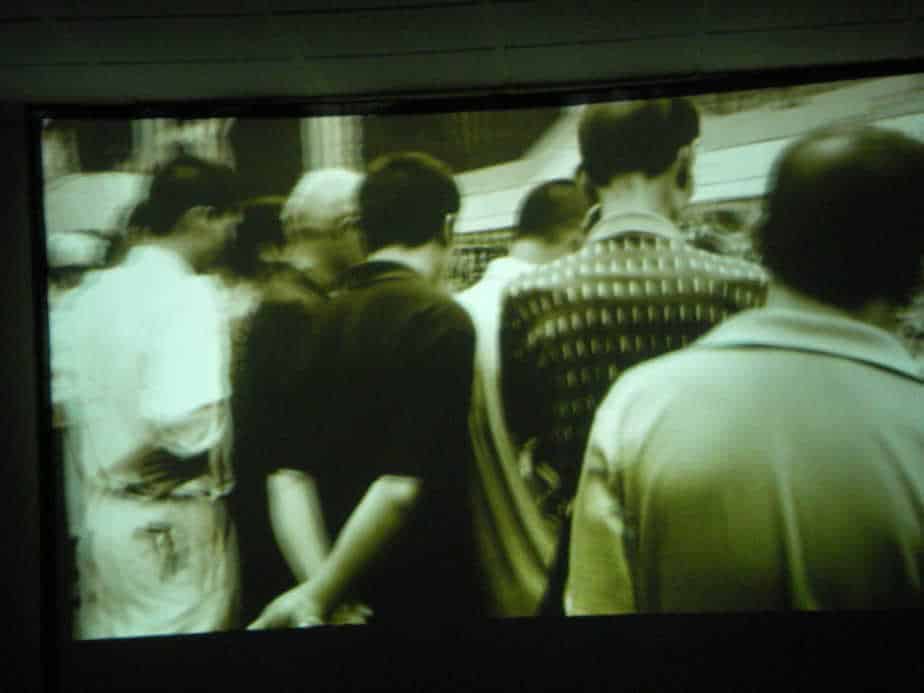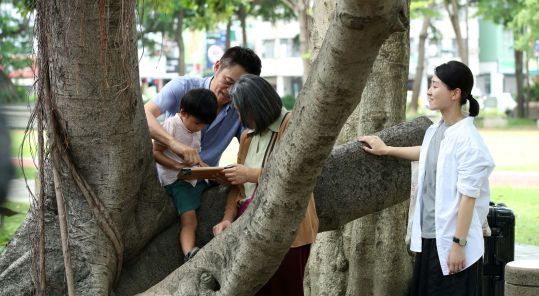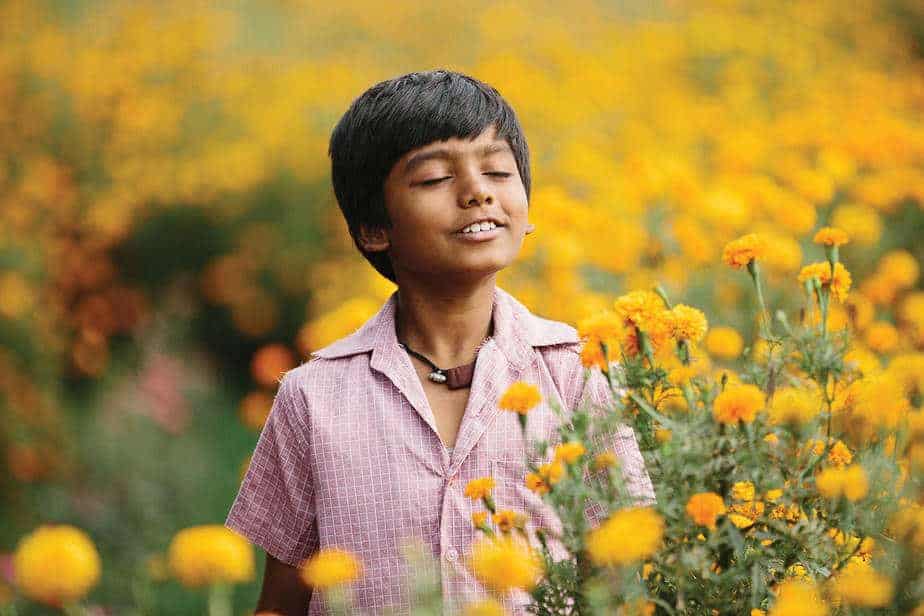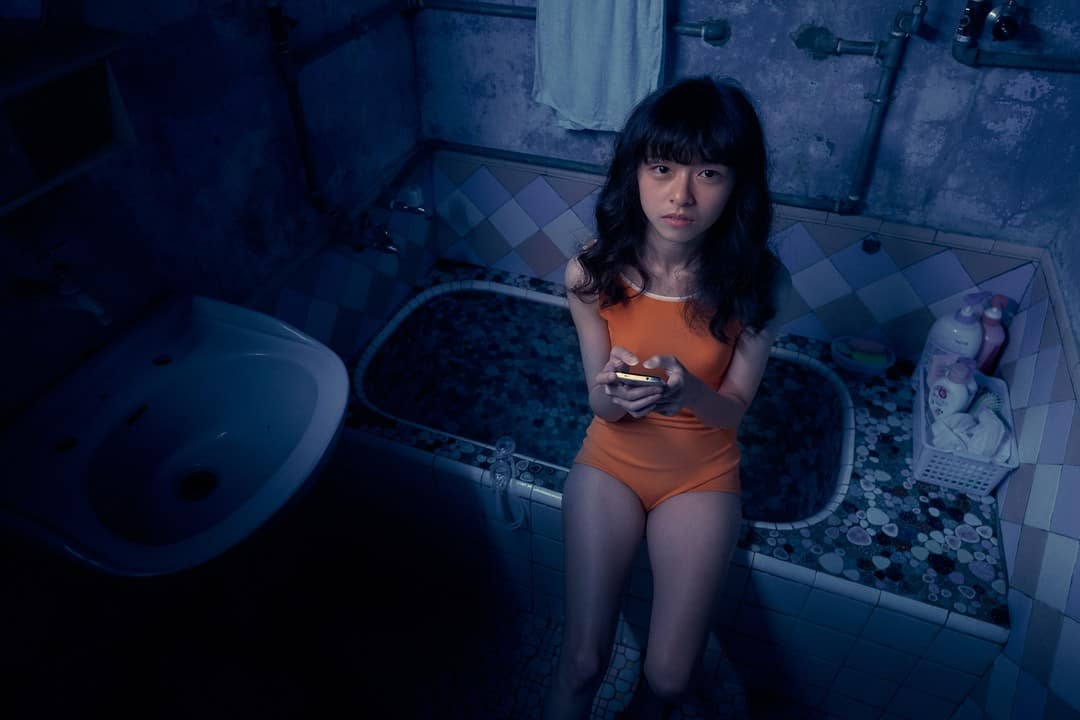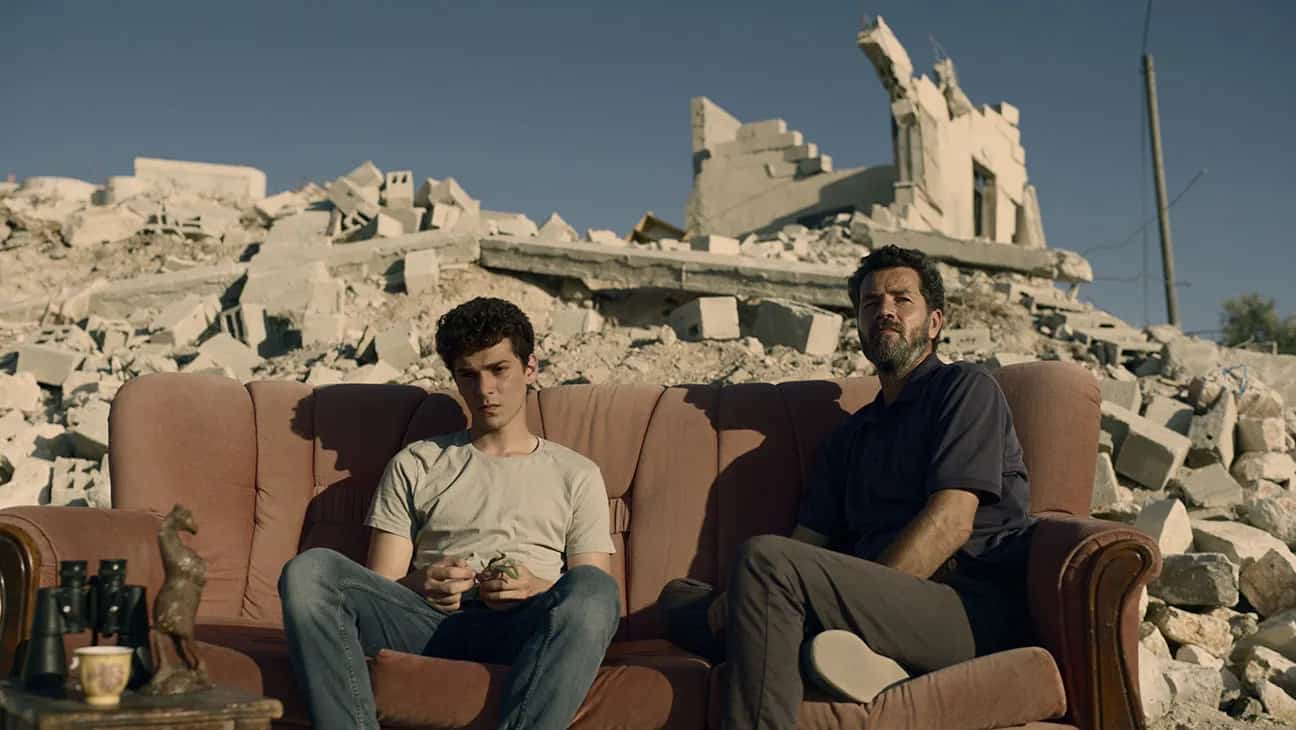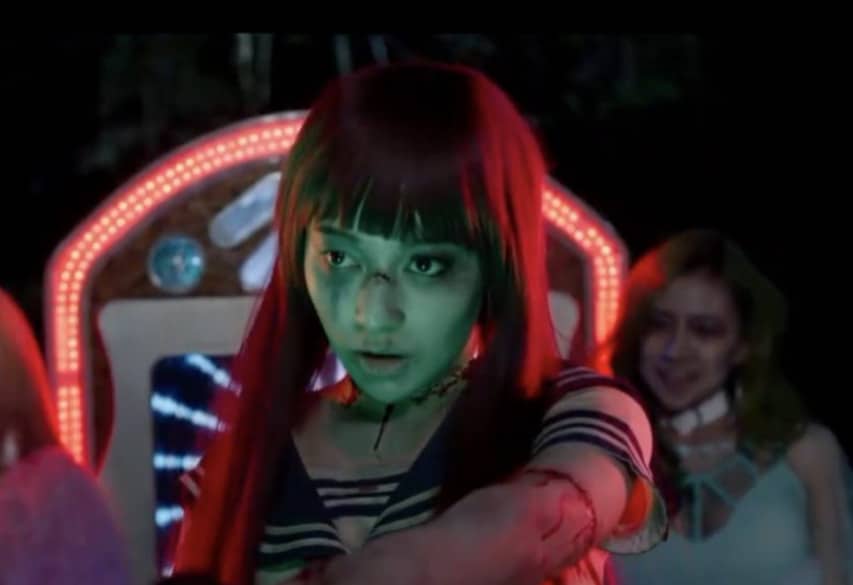Forced by the COVID-19 outbreak to spend long time at home, Ye, a 19 year old cinema and arts student, is asked by one of her lecturers to make a movie about her rural hometown. She, with the help of her kindergarten friend, decide to make a documentary about the town's dilapidated cinema. Ye wants to cast Tai, her almost centenarian grandmother as the protagonist, reminiscing about the good ol' times when cinema mattered for the people. Her aspirations of making a grand statement on the state of cinema are quickly destroyed when the old woman tells her she didn't like movies much. Adamant to make her film no matter what, Ye decides to fabricate her grandmother's pleasant memories of the once grand cinema hall.
The Crocodile Without a Tail is streaming on CathayPlay

In his brief half an hour runtime, Huang Hongming's “The Crocodile Without a Tail” changes its tone and topic a lot. It starts as a documentary about Ye's documentary, then switches to a one about her imploring her stubborn grandmother to help her in her scheme, until it finally settles on being an exploration of the relationship between the two women and that of Ye and her family which we never see. Through it, the aspiring directress within the documentary we are watching, learns that her grandmother and she are very similar, making the young woman feel closer to Tai, the person everyone in her family seems to dislike and avoid.
This lends an atmosphere of spontaneity to this mid-length film. It is as if the director was there, simply filming what happens in front of him, at times letting Ye vent out her frustrations with Tai or her family in front of his lens in the form of improvised interviews. Not too much though, because as Ye's teacher tells her early on, too many interviews can ruin a film.
The second of the three tentative parts of the movie is undoubtedly the most interesting. Watching the two girls failing to cajole the incredibly obstinate old woman to even go out of her house, let alone visit the cinema, and thinking of ways to save Ye's film is very refreshing and entertaining. At one point, they even decide to print Tai's portraits and bring them to the old cinema building just so Ye can create some kind of link between the two. The old woman seems unimpressed and uninterested even by this prospect, showing the character that is legendary among the other family members.
These failed tries to make the film introduce, but, sadly, quickly drop, a question about the nature of documentary cinema. The further Ye goes from her initial plan of making a straightforward documentary film, the more she philosophizes and tries to justify her actions. At a point, she even goes as far as to say that the viewers won't know what's real and what's not, so ultimately, it wouldn't matter if it's staged or not. And whether we agree with her or not, even whether what she says is real or not, doesn't matter, what is important is that documentary filmmaking has the potential of making us see familiar things with a new set of eyes.




